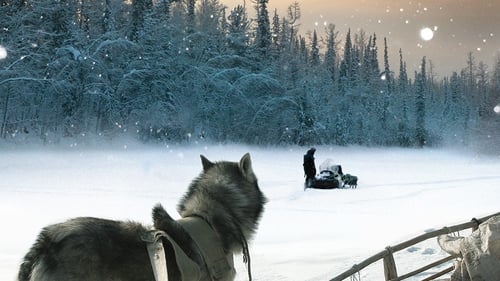
Director
Home is the story of four generations of a family of Russian Americans, descendants of the Golitsyns, a distinguished princely family. After fleeing Russia, they made their way to France, and from there to the United States. For more than two decades now they have lived in Alaska. This former Russian territory in some mysterious way provides a link if not to their native country, then to their Fatherland, which none of them has ever seen. In its wanderings this large family has not preserved material treasures, but rather their nobility and dignity—the foundation upon with their Home was built.

Producer
The documentary film Another Life continues the main theme of The Happy People series: man’s faith in himself and his great capacity for survival. This is a film about strong people who are free spirits and who are not concerned with the majority of things that excite city dwellers. Perhaps these fates can serve as an example, can help us see ourselves through another person’s eyes, and allow us to take a new look at our own lives.

Writer
The documentary film Another Life continues the main theme of The Happy People series: man’s faith in himself and his great capacity for survival. This is a film about strong people who are free spirits and who are not concerned with the majority of things that excite city dwellers. Perhaps these fates can serve as an example, can help us see ourselves through another person’s eyes, and allow us to take a new look at our own lives.

Director
The documentary film Another Life continues the main theme of The Happy People series: man’s faith in himself and his great capacity for survival. This is a film about strong people who are free spirits and who are not concerned with the majority of things that excite city dwellers. Perhaps these fates can serve as an example, can help us see ourselves through another person’s eyes, and allow us to take a new look at our own lives.

Director
We are looking for ourselves (our place) in the disturbing present, in the vague future, sometimes looking into the past, we avert our eyes in fright. Meanwhile, in our country, not on that European patch where we hustle, constantly complaining, but on the whole vast Russian expanse, another life breathes. It depends little on everything that is commonly called the values of civilization, but it breathes deeply. The harsh nature of the north, vast deserted expanses, sea and river fisheries, as one of the main sources of life support, all this formed a unique way of life for Russia, its own culture and even its own special language, which Lomonosov attributed along with Russian and "Little Russian" to the three main Russian dialects. All this together created a completely special human type, a special “Pomor character”, rooted in the White Sea land and absolutely self-sufficient in this rootedness.

Editor
In the center of the story is the life of the indigenous people of the village Bakhtia at the river Yenisei in the Siberian Taiga. The camera follows the protagonists in the village over a period of a year. The natives, whose daily routines have barely changed over the last centuries, keep living their lives according to their own cultural traditions.

Writer
In the center of the story is the life of the indigenous people of the village Bakhtia at the river Yenisei in the Siberian Taiga. The camera follows the protagonists in the village over a period of a year. The natives, whose daily routines have barely changed over the last centuries, keep living their lives according to their own cultural traditions.

Director
In the center of the story is the life of the indigenous people of the village Bakhtia at the river Yenisei in the Siberian Taiga. The camera follows the protagonists in the village over a period of a year. The natives, whose daily routines have barely changed over the last centuries, keep living their lives according to their own cultural traditions.







